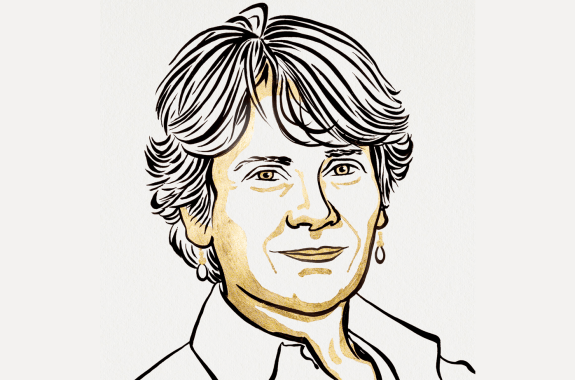As Science Friday’s director and senior producer, Charles Bergquist channels the chaos of a live production studio into something sounding like a radio program. He coordinates in-studio activities each week from 1-4. And then collapses. He also produces pieces for the radio show. His favorite topics involve planetary sciences, chemistry, materials, and shiny things with blinking lights.
Charles has been at Science Friday longer than anyone on staff except Ira, and so serves as a repository of sometimes useful, sometimes useless knowledge about the program. He remembers the time an audience member decided to recite a love poem during a live remote broadcast, the time the whole staff went for ice cream at midnight in Fairbanks, Alaska, and the name of that guy Ira is trying to remember from a few years back who did something with space.
He hails from southeastern Pennsylvania and worked for a while as a demonstrator at the Franklin Institute, Philadelphia’s science museum (favorite devices: Maillardet’s Automaton, the stream table, the Chladni plates). He has a degree in chemistry from the University of Delaware, home of the Fighting Blue Hens, and a master’s in journalism from New York University’s Science, Health, and Environmental Reporting Program. However, he attended the program prior to the addition of ‘Health’ to its name, which may explain his slight unease when covering medical topics.
Outside the walls of Science Friday, he enjoys backpacking, camping, cooking not-entirely-healthy things, reading escapist fiction, and trying to unravel his children’s complicated stories.
17:11
The Science That Captivated SciFri’s Reporters In 2024
Two SciFri producers discuss the year’s most intriguing stories, from new weight-loss drugs to PFAS chemicals to the ManhattAnt.
12:09
Farewell, Murder Hornet, We Hardly Knew You
Officials say the invasive Asian giant hornet, with its menacing nickname, has been eradicated from the United States.
7:37
Can Spiking Eggnog Kill Bacteria From The Raw Eggs?
If treated properly, even old-fashioned eggnog made with cream and raw eggs can be a safe holiday beverage.
12:17
The Universe Is Expanding Faster Than Expected
The effect, known as the Hubble Tension, has been confirmed by James Webb Space Telescope observations.
10:19
The Accidental Discovery That Gave Us ‘Forever Chemicals’
The host of the “Hazard NJ” podcast talks about the origins of PFAS “forever chemicals” and their impact on New Jersey residents.
17:33
Marie Curie And The Women Scientists Who Became Her Legacy
A new book looks at the life of Marie Curie through the lens of some of the 45 women who passed through her laboratory.
17:22
Protecting Against Poison Exposure This Holiday Season
It’s not poinsettias: A medical toxicologist discusses the most common household risks to kids during the holiday season.
17:38
A Nobel Prize For Chemistry Work ‘Totally Separate From Biology’
In a conversation from 2022, Dr. Carolyn Bertozzi discusses bioorthogonal chemistry, which could have applications in chemotherapy.
47:55
A Theatrical Tribute To Unexpected Science
This year’s Ig Nobel Prizes include awards for studying coin flipping, the movements of a dead trout, and more.
11:44
SpaceX’s Starship Completes In-Orbit Engine Test
This was the sixth test launch of the Starship vehicle, which could eventually carry humans and cargo to the moon. It was extremely loud.









